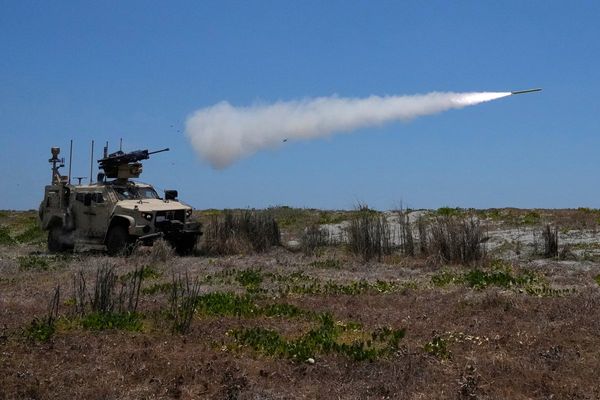Mining magnate Clive Palmer says "there will be action taken" after the federal government blocked his proposal for a new coal mine in central Queensland.
Federal Environment Minister Tanya Plibersek on Wednesday revealed she rejected the project because of its risks to the Great Barrier Reef, as well as freshwater creeks and groundwater.
It was the first time in Australian history that a coal mine had been rejected under national environment laws.
Mr Palmer said he "didn't expect that would happen".
"We certainly dealt with all the minister's worries and concerns and we haven't been given a fair go before the minister," he said.
"There will be action taken. I can't really talk about it.
"I'm not the sort of person who doesn't do anything as you've probably realised from my history."
The mine, if approved, would have included two open-cut pits between Ogmore and Marlborough, north of Rockhampton in central Queensland.
The site was 10 kilometres from the edge of the Great Barrier Reef World Heritage Area.
Ms Plibersek said in a statement she took her decisions "very seriously" and followed independent scientific advice.
"The company had many opportunities to put their views to me including when I made a proposed decision," she said.
"I took all their submissions into account."
Ms Plibersek first indicated she would reject the mine in August and sought public consultation.
The department received more than 9,000 public comments on the proposal, with more than 98 per cent in favour of blocking the mine.
Mr Palmer said his proposal had measures in place to deal with environmental concerns and the rejection was an economic blow to Queensland.
"We've got men and women depending on their jobs and livelihoods and we had to do what we could to help it," he said.
"These are decisions that affect the whole community, that affect our standard of living."
On Thursday, Ms Plibersek said the Great Barrier Reef was worth about $6 billion a year to the economy and supported 64,000 jobs.
"Protecting the Great Barrier Reef is not just important environmentally, it's also important economically," she said.
The Queensland government had also recommended the mine be rejected.
The mine was expected to operate for about 20 years, mining a mix of coking coal used for steelmaking and thermal coal used for electricity.
It would have produced about 10 million tonnes of run-of-mine coal a year and employed between 100 to 500 people during its operations.







